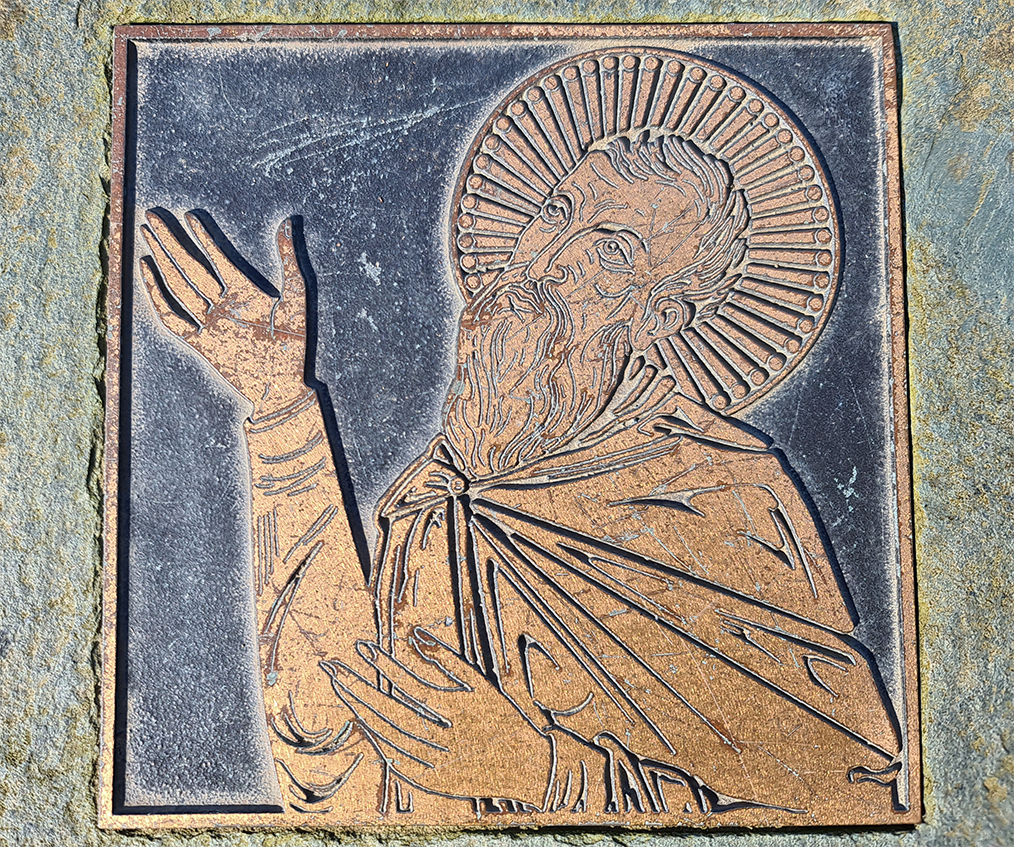
St Herbert was an Anglo-Saxon hermit of the 6th century who was a friend and a disciple of St Cuthbert of the Holy Island of Lindisfarne. He travelled to Northumbria to visit St Cuthbert every year. He lived alone on the island that bears his name in Derwentwater, Cumbria. On the side of the lake, close to the town of Keswick is Friars’ Crag, the place from which pilgrims would set out to visit the island of St Herbert in the centuries after his death. He evangelised in some of the areas around the lake, preaching the Christian Gospel, and a small chapel was built later for the pilgrims who would visit. Even today the local Roman Catholic community visit his island to celebrate the Liturgy on his feast day.
He died on March 19th, the same day as St Cuthbert, in 687 A.D. and his feast day, with that of the more famous St Cuthbert, is on March 20th each year.
St Bede writes about him in his history of the Church saying…
There was a certain priest, revered for his uprightness and perfect life and manners, name Herbert, who had a long time been in union with the man of God (St Cutherbert of Farn Isle), in the bond of spiritual love and friendship. For living a solitary life in the isle of that great and extended lake, from whence proceeds the river of Derwent, he used to visit St Cuthbert every year, to receive from his lips the doctrine of eternal life. When this holy priest heard of St Cuthbert’s coming to Lugubalia, he came after his usual manner, desiring to be comforted more and more, with the hope of everlasting blisse, by his divine exhortations. As they sate together, and enjoyed the hopes of heaven, among other things the bishop said:
`Remember, brother, Herbert, that whatsoever ye have to say and ask of me, you do it now, for after we depart hence, we shall not meet again, and see one another corporally in this world; for I know well the time of my dissolution is at hand, and the laying aside of this earthly tabernacle draweth on apace.’

When Herbert heard this, he fell down at his feet, and with many sighs and tears beseeched him, for the love of the Lord, that he would not forsake him, but to remember his faithful brother and associate, and make intercession with the gracious God, that they might depart hence into heaven together, to behold His grace and glory whom they had in unity of spirit served on earth; for you know I have ever studied and laboured to live according to your pious and virtuous instructions; and in whatsoever I offended or omitted, through ignorance and frailty, I straightway used my earnest efforts to amend after your ghostly counsel, will, and judgment. At this earnest and affectionate request of Herbertes, the bishop went to prayer, and presently being certified in spirit that his petition to heaven would be granted, – `Arise,’ said he, `my dear brother, weep not, but let your rejoicing be with exceeding gladness, for the great mercy of God hath granted unto us our prayer.’
The truth of which promise and prophecy was well proved in that which ensued; for their separation was the last that befell them on earth; on the same day, which was the 19th day of March, their souls departed from their bodies, and were straight in union in the beatific sight and vision; and were transported hence to the kingdom of heaven, by the service and hands of angels.
Holy Herbert the Hermit, pray to God for us.
